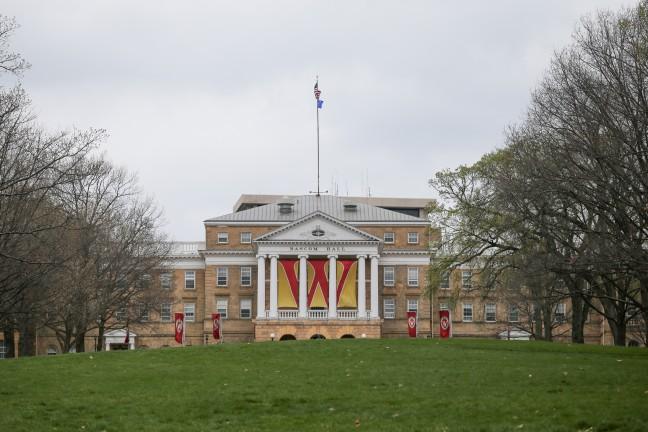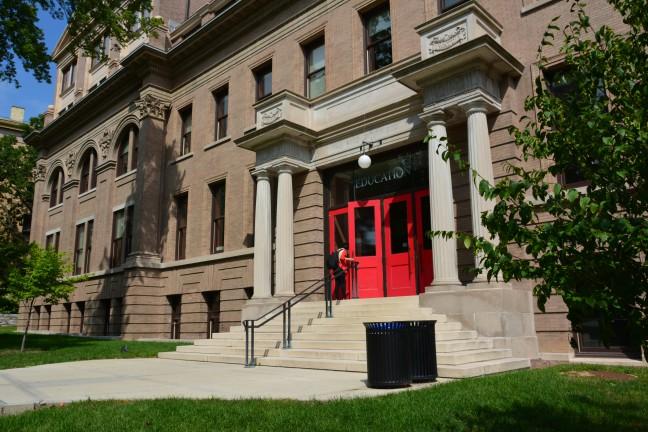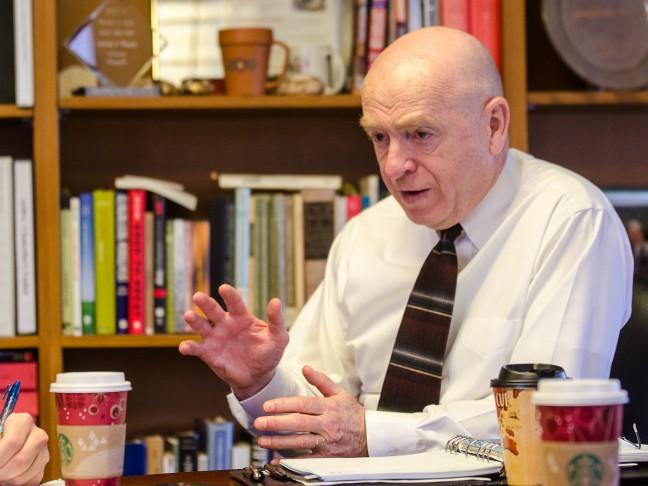A task force focused on the University of Wisconsin System convened for the first time Wednesday to consider changes that could be made to the system in order to increase its flexibility.
On Wednesday, Aims McGuinness, senior associate of the National Center on Higher Education Management Systems, presented the task force with lessons he had learned from studying other states’ higher education systems.
His lessons included keeping agreements between state and higher education systems simple, decentralizing the higher education system and giving it more flexibility from the state government, and making clear what problems the task force wants to solve.
“If you can really be clear about what problems you’re solving in Wisconsin, you will be way way ahead [of other states],” McGuinness said. “That is fundamental. Working hard and trying to change things with the wrong problems would be the worst disaster.”
Last session, when the Joint Finance Committee studied proposals from the governor for the UW System, including a proposal to break UW from the rest of the system, JFC decided to form a special task force to review those proposals, Rep. Pat Strachota, R-West Bend, said.
Members of the task force include UW-Oshkosh Chancellor Richard Wells, UW-Platteville Chancellor Daniel Shields, Sen. Sheila Harsdorf, R-River Falls, Sen. Chris Larson, D-Milwaukee, and UW Vice Chancellor for Administration Darrell Bazzell.
David Olien, Senior Vice President Emeritus of the University of Wisconsin System and task force member, said the biggest problem facing the UW System is a lack of funds.
“As I look at long term projections for this state with the demands of Medicaid and other programs, I find it very hard to find how any governor, any legislature, is going to allocate more money to the UW System than it did this year … unless there’s an economic turnaround that nobody suspects,” Olien said.
While agreeing one of the major problems facing public universities throughout the nation was tuition, McGuinness said the real issue is figuring out where the money goes to and demonstrating how higher education will benefit the state.
The legislature charged the task force to decide whether there was a need to restructure the UW System and, if so, to provide recommendations to the new governing structure, Michael Falbo, chair of the task force and a member of the UW System Board of Regents, said.
The task force also would have to decide how system employees would move from the current system to a newer system, whether tuition flexibility could be extended to the UW System while ensuring access and affordability and what role the legislature should have in establishing tuition rates, Falbo said.
For the task force’s next meeting in January, Falbo said he would like to have the UW System present the force with the system’s goals, directions and data to clarify what reforms the system needs.
The task force would look at those goals from the perspectives of legislative representatives and from the committee’s business experience, and decide whether they can design a more flexible system, Falbo said.
“Where we go from here is going to be, I think, very crucial,” Strachota said. “I think we have to have the debate on higher education in the State of Wisconsin.”
















